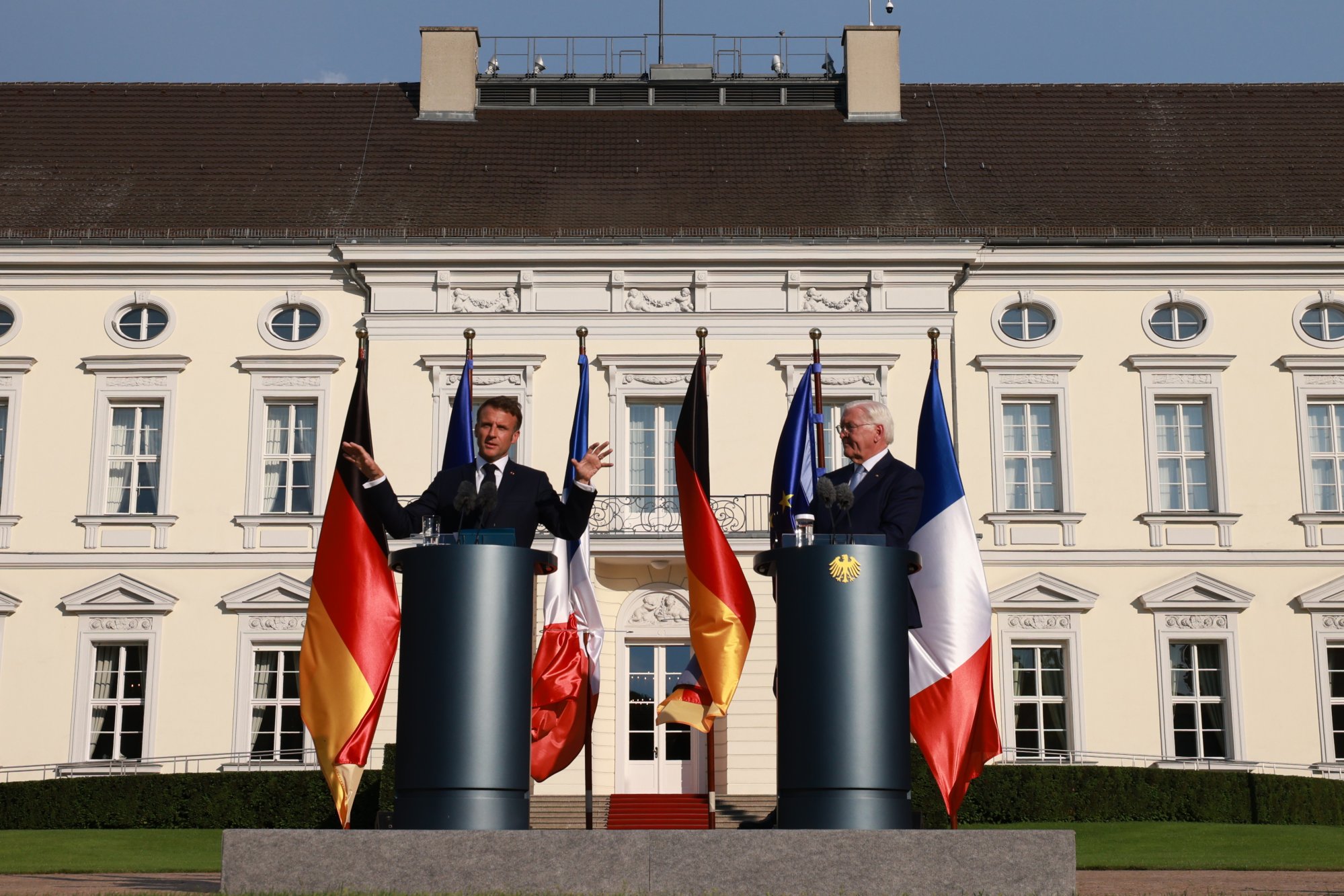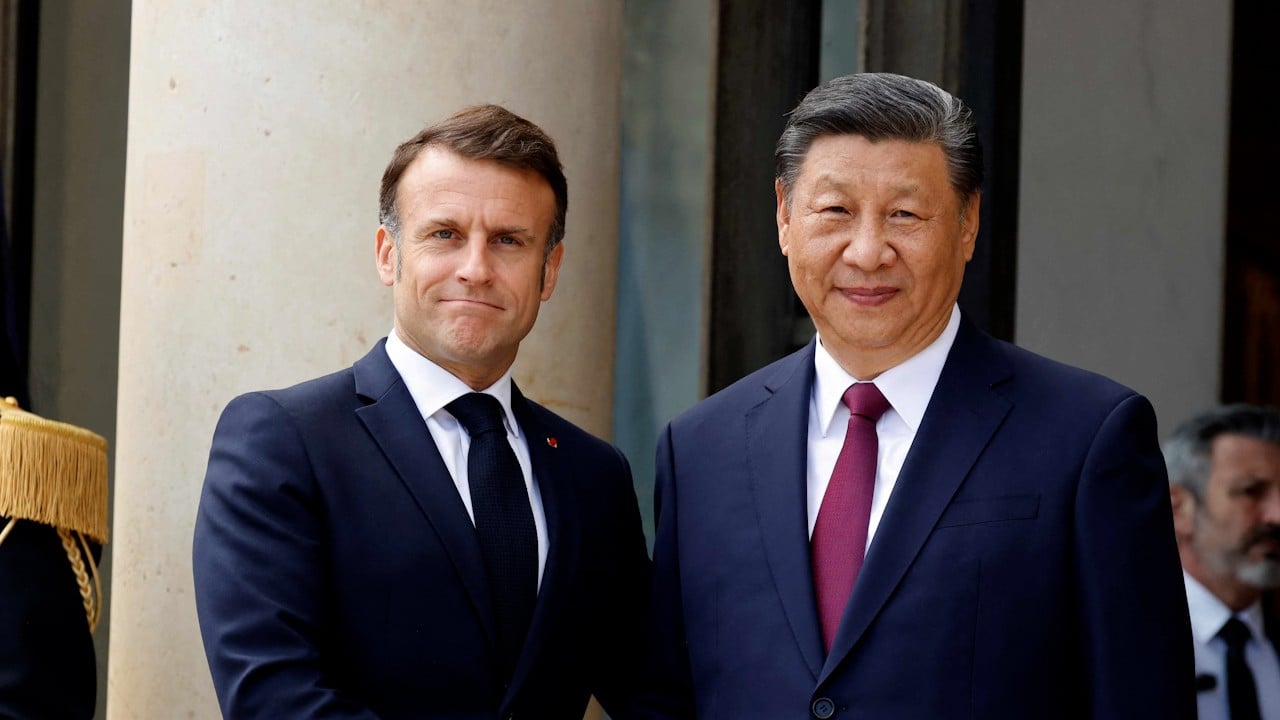Steinmeier said: “We need an alliance of democrats in Europe.”
Macron “has rightly pointed out that the conditions today before the European elections are different from the previous election, a lot has happened”, he said.
Speaking at a press conference, Macron said he will work to “unmask” France’s far-right National Rally (RN), warning that “nothing in their rhetoric holds water”.
“Unlike many, I’m not getting used to the idea that the National Rally is just another party. And so when it’s at the top of the surveys, I see this party and its ideas as a threat to Europe,” he said.
“Our Europe, today, is mortal and it can die,” the French president said. “It can die and this depends only on our choices.”
Ramping up his warning in Berlin, Macron urged Europeans “to go vote for the party that we back and a party that defends Europe”.

After the talks with Steinmeier in Berlin on Sunday, Macron is expected to bring his message to Dresden in the former East German Saxony state, where the AfD has a strong support base.
Tuesday will take Macron to the western German city of Munster and later Meseberg, outside Berlin, for talks with Scholz and a Franco-German joint cabinet meeting.
Beyond making joint appeals for the European elections, Macron’s three-day visit will seek to emphasise the historic importance of the post-war relationship between the two key EU states.
France next month commemorates 80 years since the D-Day landings that marked the beginning of the end of German World War II occupation.
But all has not been smooth in a relationship often seen as the engine of the EU, and German officials are said to be uneasy at times about his perceived theatrical style of foreign policy.
The Franco-German relationship is about disagreeing and trying to find ways of compromise
Macron’s refusal to rule out sending troops to Ukraine sparked an unusually acidic response from Scholz that Germany had no such plans. Germany also does not share Macron’s enthusiasm for a European strategic autonomy less dependent on the United States.
But the French president sought to bat off talk about discord, saying that coordination with Germany has been key over the years.
He cited examples such as sanctions against Russia over its war on Ukraine and action to spur European economic growth and innovation after the pandemic.
“The Franco-German relationship is about disagreeing and trying to find ways of compromise,” said Helene Miard-Delacroix, specialist in German history at the Sorbonne university in Paris.
Mujtaba Rahman, managing director for Europe at risk analysis firm Eurasia Group, said relations between France and Germany “remain awkward, verging on hostile”.
“On the big issues, little progress should be expected,” he said on X.
While Macron is a frequent visitor to Berlin, the trip is the first state visit in 24 years following a trip by Jacques Chirac in 2000 and the sixth since the first post-war state visit by Charles de Gaulle in 1962.


